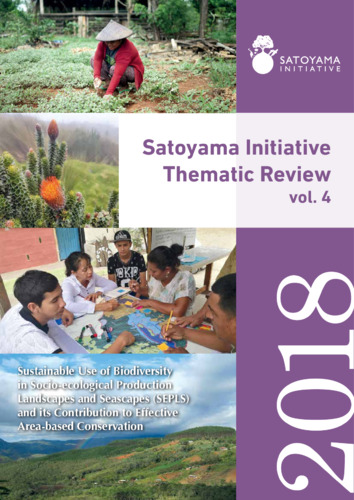Perceptions of resilience, collective action and natural resources management in socio-ecological production landscapes in East Africa
If properly managed, socio-ecological production landscapes and the ecosystem services they provide can contribute to
the well-being of local communities, as well as to the achievement of the global conservation agenda and of other relevant
development policies at the national level. However, many of these landscapes worldwide are often highly insecure due
to unsupportive government policies, agencies, and lack of local collective action. By conducting a network analysis and
participatory exercises with district officials and farmers in two communities from Rakai (Uganda) and Lushoto (Tanzania)
districts, we studied local perceptions regarding (a) the contribution of natural resources to local farmers’ livelihoods, and
how these farmers, in turn, contribute to the conservation and sustainable use of these natural resources, (b) landscape
threats and resilience, and (c) major causes of the identified and possible local solutions for mitigating them. The study shows
that in the four communities there was very little communication among farmers and that the cooperation between farmers
and local and district stakeholders was rather limited. Farmers did not seek much information concerning conservation and
use of natural resources and very few of them were aware of the existence of government programs regulating natural
resources management. In addition, the study sites were found to be experiencing a progressive degradation of their
natural resources. We, therefore, conclude that the creation of spaces for informed, public discussion aimed at making
the institutional context more favourable for the creation and coordination of community groups and at enhancing their
interaction, would contribute to a wider movement of knowledge and social exchange. This, in turn, could ultimately result
in the creation of local initiatives aimed at the conservation of natural resources.

